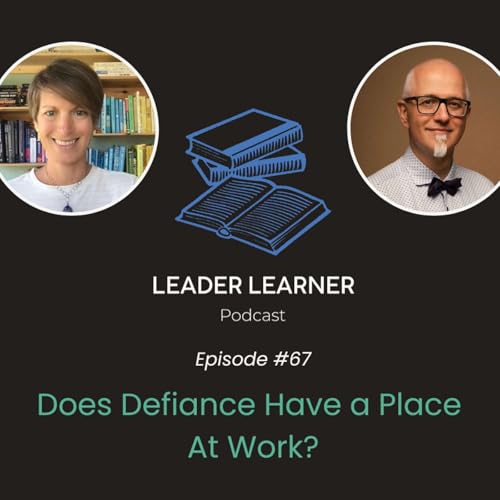Send us a text
💡 SPOTLIGHTED BOOK : First Things First by Stephen R. Covey 📚 GUEST READER : Maha Bali
💬 CONVERATION HIGHLIGHTS:
- it's a life management book and how to prioritize
- imagining the end of your life and what people will say about you
- Live, Love, Learn and Leave a Legacy
- visualization where you attend your own funeral
- when what is written on paper and what you do in real time does not match
- Do our personal goals interfere with our institution's goals?
- Switch careers in order to focus on learning and leaving a legacy
- You don't need to be balanced in all areas at all times - you might focus more on love in some phases of your life and then lean into learning and legacy in other phases
- when strong emotional labor in our work affects the rest of our life
- when we pursue a legacy that isn't ours
- education systems all have their issues
- when our pain points direct our passions and desire to "fix" things later in life
- restart works for more than computers and electronics
- leaning into what brings you joy
- opportunity gaps can cause us to choose a certain path, even if it doesn't fit for us
- when your value as a person is not remunerated financially within society
- reading books by only one demographic can be limiting
- reading things from different cultures takes additional reflection
- interacting with people from different cultures helps us understand other identities
- when you read a book by someone who lived it versus reading a book by someone who has observed the same experience
- when our looks and names get in the way of full assimilation in a country
- empathy to others oppression as an outside observer
- not forcing people into our language dynamics
- sharing learning with others and giving it freely
- share questions, not just the answers
- worry about giving the wrong knowledge
📚 OTHER BOOKS/RESOURCES MENTIONED:
- The 7 Habits of Highly Effective People by Stephen R. Covey
- Mindvalley - Speak and Inspire Course
- Lisa Nichols
- Belong - Radha Agrawal
- Emergent Strategy - adrienne marree brown
- Imagination : A Manifesto - Ruha Benjamin
- The Art of Gathering - Priya Parker
- The Message by Ta-Nehisi Coates
ℹ GUEST BIO AND LINKS:
Maha Bali is Professor of Practice at the Center for Learning and Teaching at the American University in Cairo. She has a PhD in Education from the University of Sheffield, UK. She is co-founder of virtuallyconnecting.org (a grassroots movement that challenges academic gatekeeping at conferences) and co-facilitator of Equity Unbound (an equity-focused, open, connected intercultural learning curriculum, which has also branched into academic community activities Continuity with Care,Socially Just Academia, a collaboration with OneHE: Community-building Resources and MYFest, an innovative 3-month professional learning journey. She writes and speaks frequently about social justice, critical pedagogy, and open and online education. She blogs regularly at https://blog.mahabali.me and tweets @bali_maha.
For Maha’s list of peer-reviewed publications, see here.
For Maha’s list of keynotes and invited talks,
More yummy content on leaderlearner.fm
 Dec 9 202534 mins
Dec 9 202534 mins Nov 13 202531 mins
Nov 13 202531 mins Oct 30 202535 mins
Oct 30 202535 mins Oct 15 202535 mins
Oct 15 202535 mins Feb 13 202538 mins
Feb 13 202538 mins 46 mins
46 mins 43 mins
43 mins Nov 21 202447 mins
Nov 21 202447 mins
